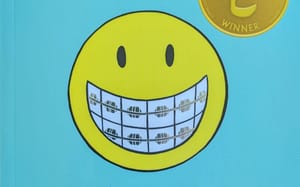We still don’t appear to know what to make of Wikipedia. Consider these two cases.
First, Edward Glaeser includes a reference to Wikipedia in the acknowledgements to his new book, Triumph of the city.
Following common practices, Wikipedia is not listed in the bibliography or citations, because any Wikipedia fact was verified with a more standard source. But I still have a great debt to the anonymous toilers of Wikipedia who made my research much easier at many points in time. I apologize if any phrases from that, or any other source, crept into my prose – one research assistant was assigned the explicit task of purging such inadvertent borrowing – but mistakes do sometimes get through. [272-273]
This is really quite interesting. Wikipedia appears to have been heavily used in the preparation. I wonder did any of the work involved in separate verification of detail find its way back into Wikipedia? It is also interesting that Wikipedia is not cited even when it is found to be reliable (one of the benefits of Wikipedia’s versioning is that this would be possible).
Second, my daughter (a sophomore in high school) was given an assignment to introduce errors into Wikipedia. Presumably, the intention was to demonstrate that entries could be ‘unreliable’. Now, she chose a popular page, and had her changes corrected almost straightaway, to the extent that it was not possible to complete the assignment as given. In fact, she ended up being barred from editing pages as her behavior was seen as unacceptable.
I have described Wikipedia before as an addressible knowledgebase, and this is certainly one of its major advantages. It makes further information about a topic sharable with a URL, and in this way it relieves people of having to create their own context and background. A second advantage is that it gives us a first cut description of a topic, or of relations between topics, and for many purposes this suffices. I imagine that this is a major way in which it is used by Ed Glaeser above. It is also how I imagine Google Books is being used, or the related Ngram viewer. These allow quick research, which can situate an interest, and which in some cases may be followed up in other sources.
I went on to say …
Wikipedia is a collection. … One cannot summarily judge its value in the way that one might have done when deciding whether or not to buy or recommend a reference book. Judgements about ‘authority’ and utility have to be made at the article level, and who has the time and expertise to flag individual articles in this way? Rather than continuing a tedious Wikipedia good/Wikipedia bad conversation, we should recognize the attraction it has as an addressable knowledge base, understand the variety of uses to which it is put, and remind folks of the judgments they need to make depending on those uses. [Wikipedia again: an addressible knowledge base]



